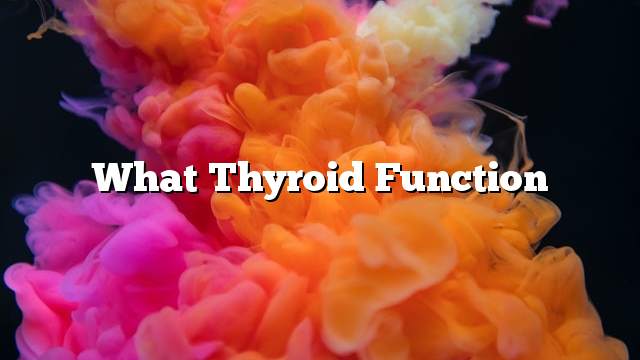Thyroid and its function
The thyroid gland is located on the front surface of the trachea just below the larynx. It is the largest endocrine glands, producing a hormone called thyroxine (T4) and a third hormone, the thyroid (T3), which is converted into the body tissue to the thyroxine. Food oxidation, production of thermal energy in the body, and regulates growth, and the lack of secretion of thyroxine at an early age leads to the cessation of growth, the body remains short (dwarf) and cause retardation in the mental forces,
Diseases of the thyroid gland
Hypothyroidism
Common symptoms:
- Continuous fatigue and tiredness.
- Inability to withstand low temperatures.
- Hair fall, dryness and flaking in the skin.
- Acute constipation.
- Excessive weight gain despite poor appetite.
- Heartbeat disorders.
- Swollen neck.
- Poor mobility.
- Slow thinking.
the cure:
Treatment of inactivity of this gland is to take alternative pills of thyroid hormone to compensate for the activity of the gland, rarely surgical intervention in the treatment, it should be noted that the treatment be reviewed by a specialist in the endocrine.
Hyperthyroidism
The two main causes that increase thyroid secretions are: Gervis disease, which results from immune system abnormalities, tumors and bronchitis.
Common symptoms:
- High heart rate.
- Increase blood pressure.
- Low weight.
- Excessive sweating.
- Diarrhea is continuous.
- Hair loss.
- Depression, and perceived discomfort.
the cure:
Treatment with drugs that inhibit the production of thyroxine, and may be surgical intervention.
Things to consider when taking thyroid drugs
- The need to continue taking the medicine prescribed by the doctor, and not stop taking it if the patient felt better.
- Tell your doctor what foods you are eating, some of which may affect your drug’s absorption.
- The thyroid gland works best if eaten on an empty stomach. It is advisable to eat it before eating an hour. The patient should also ask his doctor whether the drug should be taken at bedtime. Some studies have shown that the absorption of this drug at bedtime is Towards a better day than day.
- Wait four hours after taking the medicine, after which the patient can take supplements of fiber, iron, calcium, vitamins, aluminum hydroxide, and antacids.
- Tell your doctor if you have any of the following symptoms: Rapid loss of weight, sweating, palpitations, insomnia. These symptoms indicate that the prescribed dosage for the patient is very high.
- Note: It is necessary to take medical advice regarding the details of medicines, their timing, and the foods that can be taken; the doctor alone has the authority to determine the most appropriate for his patient.
